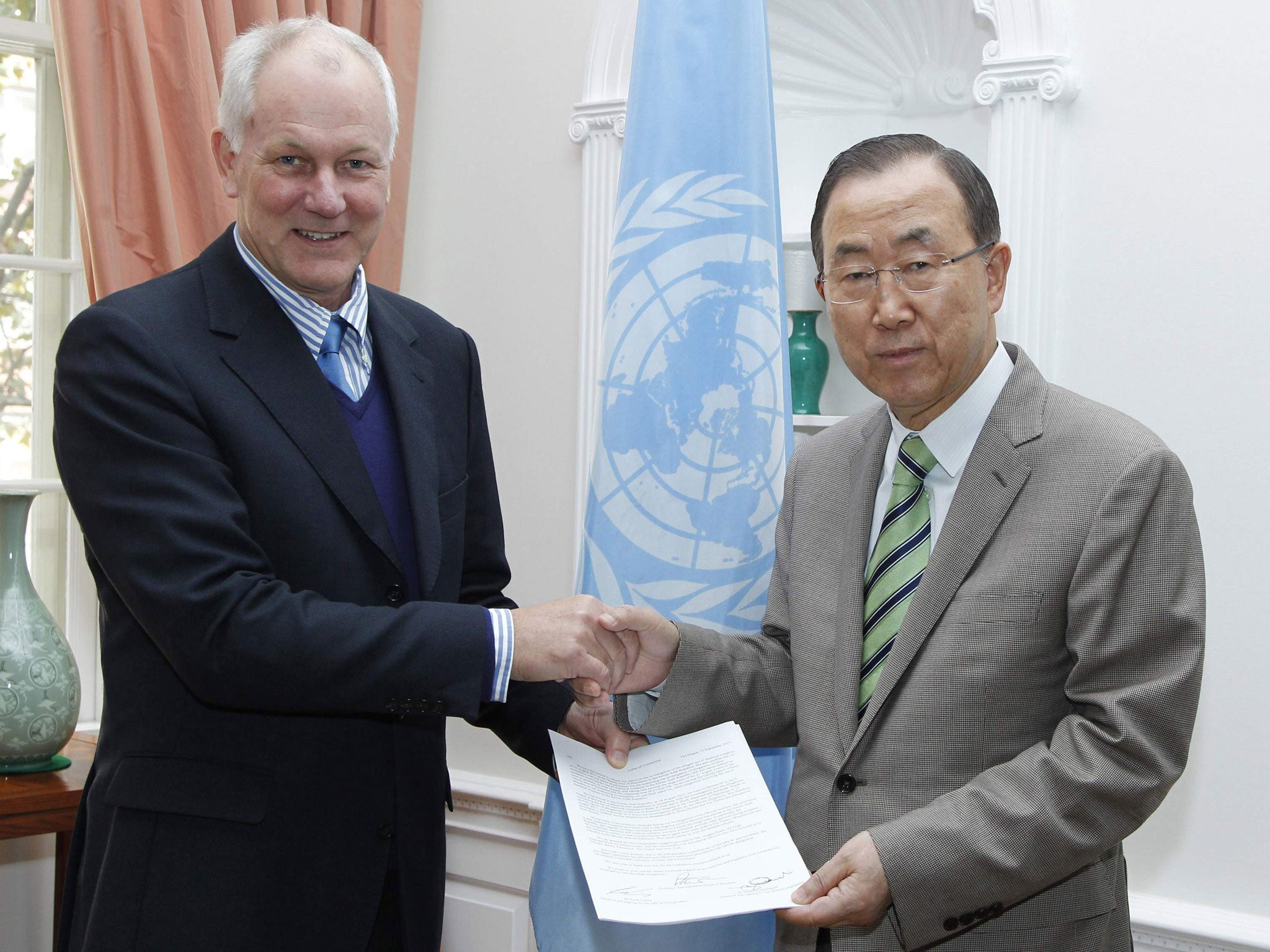Syria crisis: ‘clear and convincing evidence of sarin gas’ says UN
A report by a chief UN weapons inspector confirms that sarin gas was used in Syria ‘on a relatively large scale’, but does not list a responsible party

UN weapons inspectors have issued the first official confirmation that chemical arms have been used in the Syrian conflict, while leaving the question of who launched the attack unanswered.
The inspectors were mandated to report on whether chemical weapons were used and if so which ones — not on who was responsible.
Chief UN chemical weapons investigator Ake Sellstrom report said in his report: “The environmental, chemical and medical samples we have collected provide clear and convincing evidence that surface-to-surface rockets containing the nerve agent sarin were used... in the Ghouta area of Damascus'' on 21 August.
”The conclusion is that chemical weapons have been used in the ongoing conflict between the parties in the Syrian Arab Republic... against civilians including children on a relatively large scale,“ the report says.
“This result leaves us with the deepest concern,” the report said.
UN warcrimes investigators have also said that they are investigating 14 potential chemical attacks in Syria since they began monitoring Syrian human rights abuses in September 2011.
Earlier today, France, the US and UK put up a united front in support of the Russian-brokered Geneva deal calling for Mr Assad to give up the country’s stockpile of chemical weapons.
John Kerry said that the US, UK and France have agreed that President Bashar al-Assad will suffer severe consequences if he fails to comply with a rigid UN timetable for the removal of Syria’s chemical weapons.
Emerging from talks with William Hague and François Hollande, the US Secretary of State told a Paris news conference that the three powers would offer Mr Assad “no lifeline” if he failed to stick to the dates and guidelines drawn up by Russia and the US in the Geneva agreement presented on Saturday 14 September.
The US-Russian agreement, which will be overseen by the UN security council, calls for Mr Assad to account for his stockpile of chemical weapons within the week and allow international inspectors to eliminate the armoury before mid-2014.
Foreign Secretary William Hague echoed Mr Kerry, saying:
“The task ahead is very difficult and complex but our three countries are united and determined to use our full weight as permanent members of the United Nations Security Council and as each other's close allies to implement the agreement on Syria's chemical weapons, to maintain the pressure on the Assad regime, and to bring about a peaceful end to this appalling conflict.“
An unnamed aide to François Hollande, speaking after the three nations had met, also said the priority was to keep Mr Assad to strict deadlines on giving up his arsenal.
“The idea is to stick to a firm line,” the aide said. “They've agreed to seek a strong and robust resolution that sets precise and binding deadlines with a calendar.”
The Geneva deal came about after the US pressed the pause button on its push for military strikes that earlier this month seemed imminent.
After calling for Congressional authorisation to launch targeted strikes in response to a chemical attack in Syria on 21 August that is said to have killed more than 1,400 people, President Obama asked politicians in Washington to delay a vote while his administration had talks with Russia, a key sponsor of the Assad regime.
Q&A: The Geneva framework
Q. What is the agreement?
A. Following talks in Geneva, the US and Russia have agreed to work on a UN Security Council resolution that would secure and destroy Syria’s chemical weapons stocks and remove its capability to produce such weapons. The resolution would come under Chapter 7 of the UN charter, which allows for military action. But US officials have acknowledged that Russia would veto such a step and they do not contemplate seeking authorisation for the use of force.
Q. Is a military option off the table?
A. No. The US has indicated that it retains the right to strike militarily if Syria does not comply with the agreement, a point reiterated by the US Secretary of State, John Kerry, yesterday when he said that “the threat of force is real”.
Q. What are the next steps?
A. On Saturday, Syria was given a week to submit a “comprehensive listing... of its chemical weapons agents, types of munitions, and location and form of storage, production, and research and development facilities”. Next, the US and Russia have agreed that international inspectors should be on the ground in Syria by November and complete their initial work by the end of the month. They must be given “immediate and unfettered” access, and the destruction of chemical agent mixing and equipment must be completed by the end of November. The final goal is the “complete elimination” of all of Syria’s chemical weapons stocks, material and equip- ment in the first half of next year.
Q. What are the challenges?
A. Numerous. Despite Russia’s influence with Syria, there is no indication that the Assad government will sign off on the details of the agreement. The US and Russia do not agree on the number or whereabouts of Syrian chemical weapons sites, and how the safety of inspectors would be ensured is uncertain. Ultimately, no specific penalties for Syrian noncompliance have been agreed. AP
Subscribe to Independent Premium to bookmark this article
Want to bookmark your favourite articles and stories to read or reference later? Start your Independent Premium subscription today.

Join our commenting forum
Join thought-provoking conversations, follow other Independent readers and see their replies